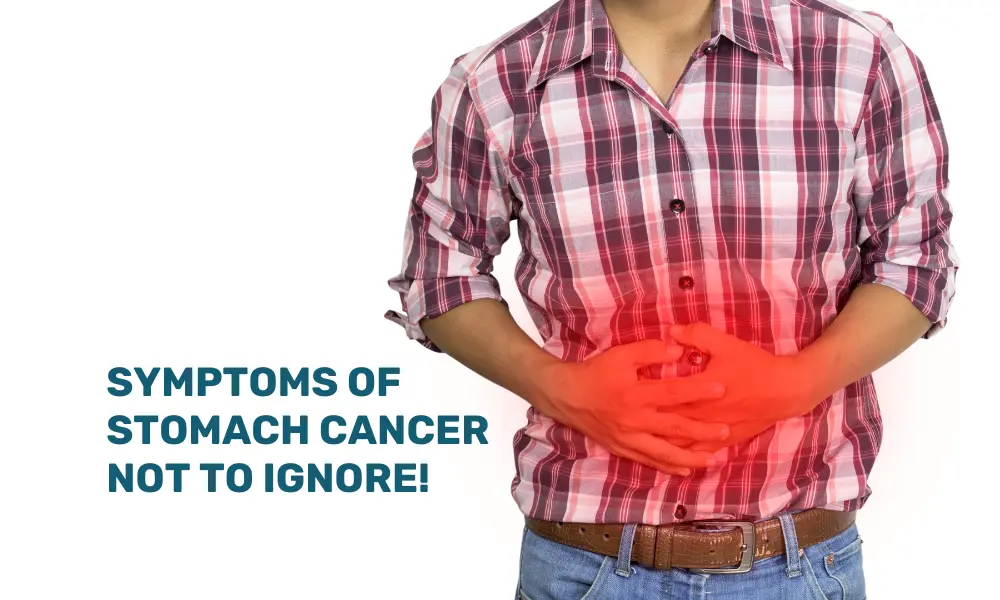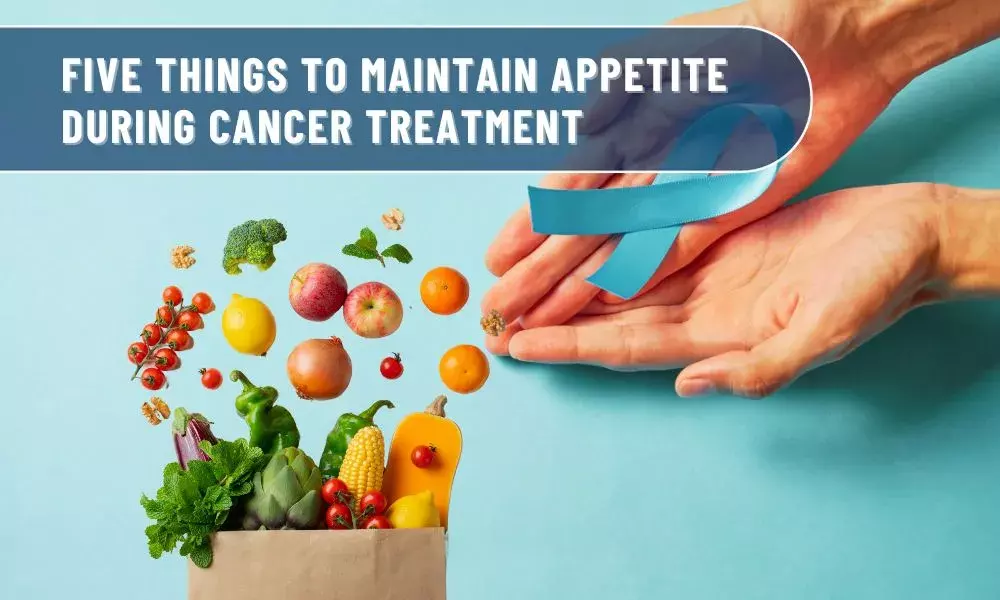The stomach helps to break down, digest food and aids in other important function of our body. It is crucial for our wellbeing. Stomach cancer is also called gastric cancer and is a growth of cells that starts in the stomach. The stomach is in the upper middle part of the belly, just below the ribs. Knowing its symptoms and risk factors can help manage the risk of stomach cancer.
Risk factors of Stomach Cancer:
-
Obesity or being overweight
-
Unhealthy eating habits
-
Too much of processed food consumption
-
Low fibre intake
-
Poor gut health
-
Having a diet rich in salty, smoked, or poorly preserved foods
-
Excessive Alcohol Consumption & Smoking
-
Certain medical conditions like pernicious anemia, chronic gastritis, and stomach polyps
-
Family history of stomach cancer
Five common symptoms of stomach cancer
There are five common symptoms that one must not ignore; these include:
-
Pain in the upper abdomen: Persistent or occasional pain in the stomach area, often after eating, may indicate the development of stomach cancer.
-
Frequent vomiting after meals: Nausea, sometimes accompanied by vomiting, may occur especially after meals and is linked to cancer blocking or irritating the stomach.
-
Vomiting blood: This can indicate bleeding in the stomach, often caused by ulcers or tumors, and requires immediate medical attention.
-
Unexplained weight loss: Losing weight without trying or experiencing an unexplained drop in appetite, which may signal cancer progression.
-
Black, tarry stools occur when blood from the stomach is digested and passed through the intestines, signaling potential internal bleeding.
Additionally, there are other concerning signs that should not be overlooked, such as jaundice, unexplained weight loss, early onset of diabetes, dark stools, and loss of appetite. Seeking immediate medical attention if you notice any of these symptoms is advised. If one experiences these signs, visiting a physician for a thorough evaluation to rule out serious underlying health conditions is crucial.
How Does Stomach Cancer Spread?
Stomach cancer spreads through three main pathways, which are:
1. Direct Spread: In its early stages, stomach cancer can invade nearby tissues and grow into the deeper layers of the stomach or spread to surrounding organs such as the esophagus, liver, pancreas, or intestines.
2. Lymphatic Spread: Cancer cells can travel through the lymphatic system. The most common areas affected are the regional lymph nodes near the stomach, particularly those around the liver and diaphragm.
3. Bloodstream: Cancer cells can enter the bloodstream and travel to distant parts of the body, a common route for metastasizing stomach cancer to distant organs.
Preventive Measures for Stomach Cancer:
-
Healthy Weight: Obesity is one of the major risk factors for stomach cancer. Therefore, one must manage the weight through a healthy lifestyle and nutritious diet. Being physically active can help lower your risk of various cancers, including stomach cancer.
-
Get Screened: If one has a family history of stomach cancer or other risk factors, one must consult the doctor about screening options, risk factors, and preventive measures that can be suitable.
-
Increased Fruit and Vegetables: A diet rich in fruits and vegetables, particularly those high in vitamin C and beta-carotene, lowers the risk of stomach cancer. Citrus fruits are beneficial in reducing stomach cancer risk.
-
Add Unprocessed food: Whole grains, lentils, and legumes are good sources of fiber and other nutrients. They must be included to lower the risk of stomach cancer.
-
Limit Salt, smoked and pickled foods, and processed meats: Excessive consumption of these foods can damage the stomach lining and increase the risk of stomach cancer. One must limit intake of processed meats, as they have been linked to an increased risk of stomach cancer.
Knowing the symptoms and risk factors can help manage the risk of stomach cancer. But the best thing is to adopt a healthy lifestyle to lower the risk of stomach cancer. One must ensure to adopt the above preventive measures to reduce the risk.




